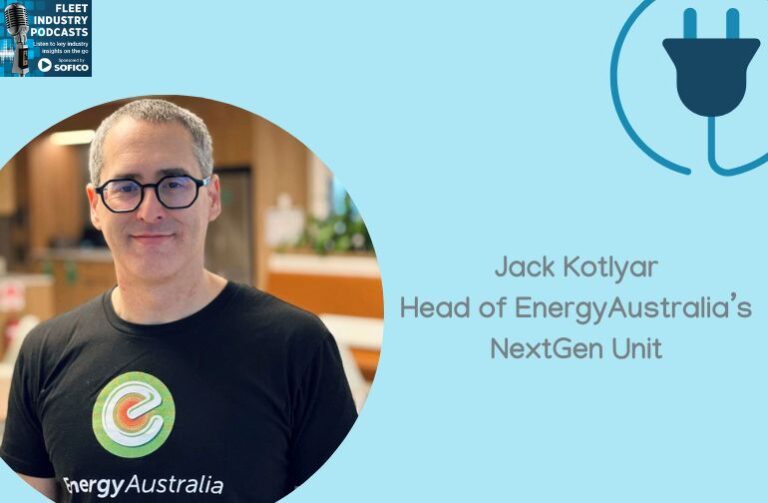Fleet News Group podcast host Caroline Falls talks with EnergyAustralia’s Jack Kotlyar about his NextGen unit’s dedication to helping fleets get set for electrifying their vehicles.
“From an EA perspective, and from a NextGen perspective, we are focusing on that electrification and decarbonization journey for those customers looking to buy electric vehicles,” said Kotlyar, head of NextGen business unit.
“We’ve really seen both residential customers and business customers, large business customers, starting to get interested in E-mobility, starting to buy electric vehicles. And, then of course, thinking about how they get those electrons, whether they’re gas fired or renewable electrons into their vehicles.”
NextGen started up about seven years ago and was created as an incubator for Energy Australia, to trial and pilot new and future services.
Now, NextGen has formed three strategic partnerships in the electric vehicle space — with Australian developed truck maker SEA Electric, with Europe-based bus maker Ebusco, and with Australian based zero-emissions transport solutions group and EV bus and truck importer Nexport. Kotlyar said these strategic partnerships are aimed at learning from all the available technology and helping customers on their electrification journey.
“There’s more to come,” said Kotlyar, referring to tie-ups with other players in electrification of transport. “We want to help their customers — because it’s their customers who are going to be buying those vehicles — and get them comfortable with the electrification journey.”
And, “We want to understand how many vehicles, what’s the current state of the network? What kind of chargers do they need?
“These partnerships are allowing us to offer the end customer that one stop shop,” he said, adding, “We also have some partnerships coming up with charging infrastructure players.”
In addition, “We’ll also have some partnerships with some engineering first firms because similarly, these end customers go to engineering firms and say: ‘How do we put the electrical infrastructure together? How much does it all cost?’ If we can partner up with them, we can offer a holistic service to the end customer.
Kotlyar commented that while electric vehicles have been trickling in to Australia since the mid 2010’s, and that their take-up is now starting to accelerate, the energy industry will respond to the extra demand.
“From an energy industry perspective, the industry has always been there to deliver that reliable, affordable energy,” he said, adding, “It’s no different to the air conditioning wave that we started having happen in the 60s and 70s.” And then, he said, “Think in the last sort of 10-15 years data centres are huge consumers of energy.”
“There always has been new demands on energy — electricity, and vehicles are just another another appliance that will need electrons.”






